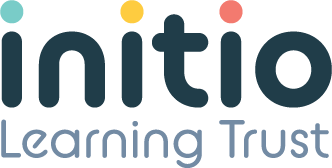Assessments and reporting
Core principles
- Assessments are important for students, teachers, leaders and parents.
- Our curriculum model is the progression model where subject specialists have carefully sequenced the knowledge, skills and understanding our students should have in each year group and key stage. If a student is learning the core knowledge and skills, they are progressing.
- We can accurately assess attainment, but we cannot accurately assess progress.
- Assessing attainment is making a judgement on whether a student has acquired the specific intended learning we have identified in our curriculum model.
- Teachers design subject specific assessments to make judgements on whether students have learnt the core knowledge and skills identified in our curriculum.
- Formative (or informal) and summative (or formal) assessments are both valuable in helping teachers to make judgements about attainment and to inform their future planning.
- We recognise that a student’s attitude to their learning is of primary importance.
The assessment cycle at Key Stage 3 and Key Stage 4
| Key Stage 3 (Years 7, 8 & 9) | Key Stage 4 (Years 10 & 11) |
|---|---|
| Each subject area will formally assess students at least once per term and this data is recorded on Bromcom as a percentage mark against a cohort average | There are termly defined assessment weeks to give students the experience of a more intense period of assessment |
| Subject areas decide when best to assess students within their curriculum each term | Assessments are conducted in the Hall/exam rooms from the Summer Term of Year 10 |
| GCSE questions are not used | Data is recorded on Bromcom using the Grades 1-9 format (or BTEC equivalent) |
| Teachers know students’ target grades (FFT20) and use these to celebrate success and identify potential underperformance but these are not shared with students or parents | Target grades (FFT20) are shared with students/parents from the Spring Term of Year 10 but these are used with caution and a shared awareness and understanding of their drawbacks |
Reporting to parents
Each year group has three reporting points per year – two written reports and one parents’ evening when subject teachers give verbal feedback.
| Key Stage 3 | Key Stage 4 |
|---|---|
| Reports will contain information about attendance, house points, behaviour points, attitude to learning and attainment in subject areas. Once a year, tutors provide written comments | Reports will contain information about attendance, house points, behaviour points, attitude to learning, attainment, currently working at and target grades in subject areas. Predicted grades will be included from the summer of Year 10. |
| Attitude to learning is assessed using a RAG (red, amber, green) rating | Written comments from subject teachers and tutors once a year |
| Where a student is identified as ‘red’ additional information about the area of concern is provided | Attitude to learning is assessed using a RAG (red, amber, green) rating |
| Where a student is identified as ‘red’ additional information about the area of concern is provided |

